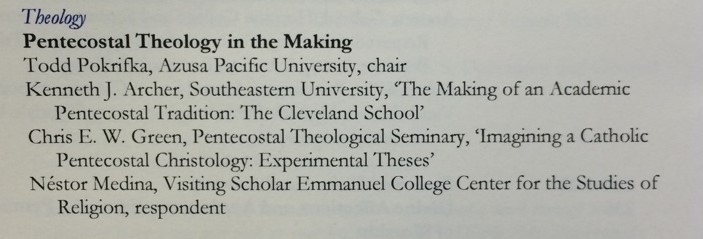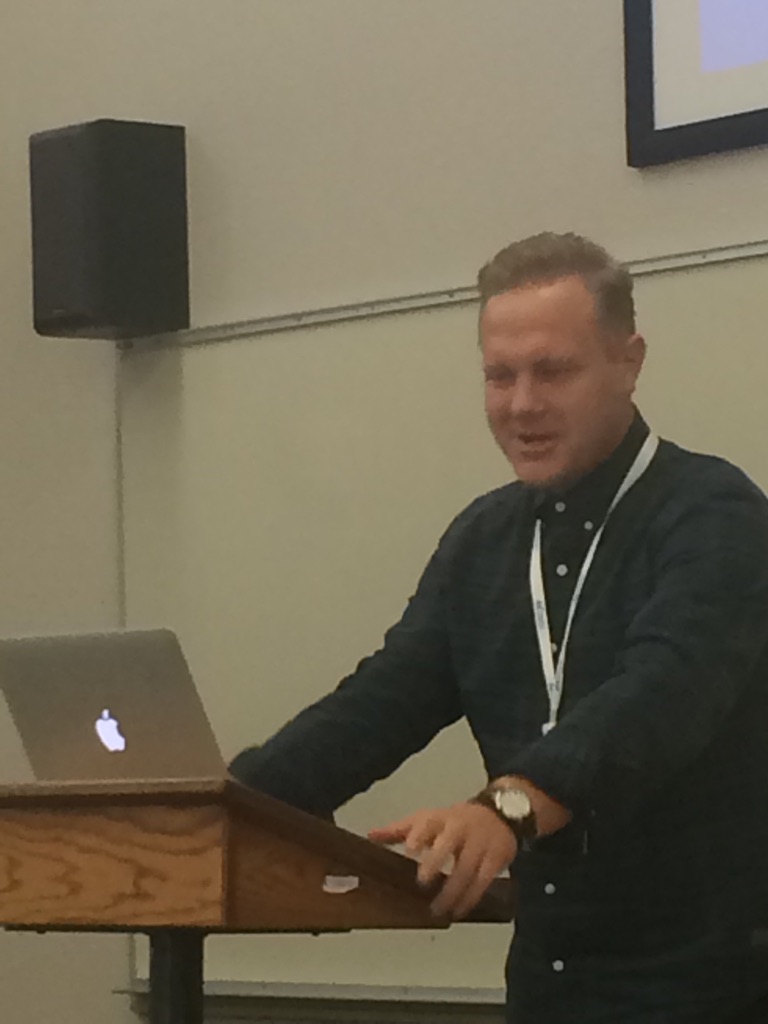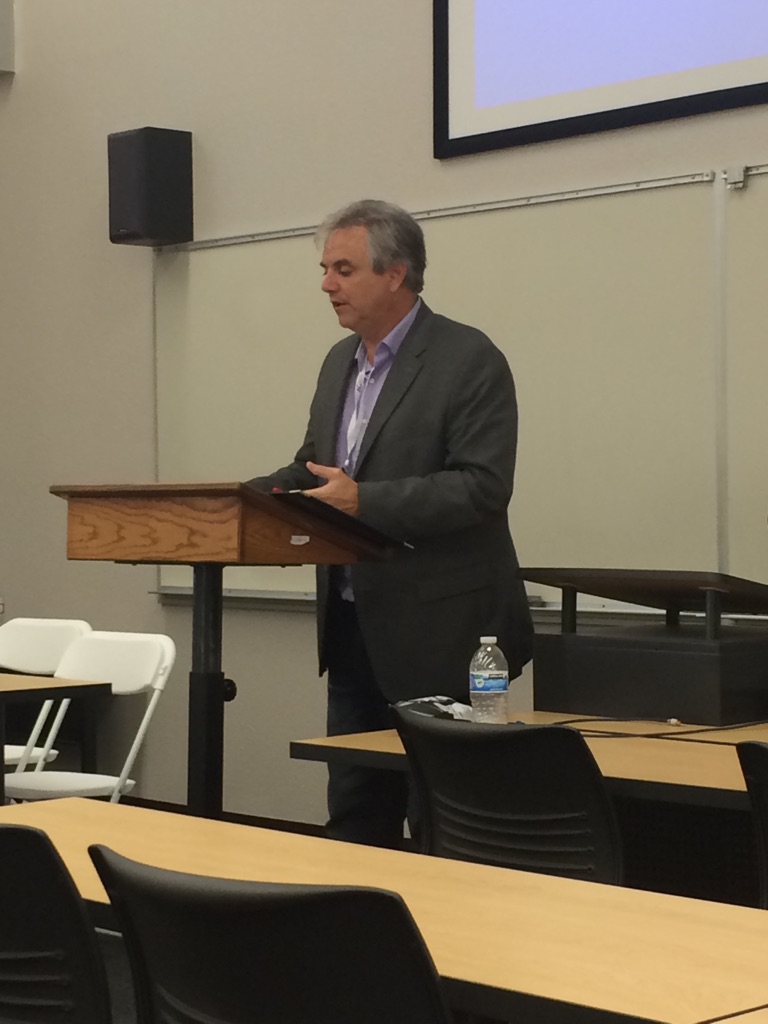The 2016 Society for Pentecostal Studies Convention in Review
The 45th Annual Meeting of the Society for Pentecostal Studies (2016) was hosted in San Dimas, California at LIFE Pacific College which is associated with the International Church of the Foursquare Gospel. The following sessions are only a small sampling of those which occurred over the three days of the meeting. 
For the Theology Interest Group on Thursday afternoon, Ken Archer presented a paper laying out three decisive moves of the “Cleveland School” as well as four key thinkers beginning in the 1980-1990s (Stephen Land, Cheryl Bridges Johns, John Christopher Thomas, and Rickie D. Moore) whose writings and contributions to Pentecostal studies were the catalyst of this “School”. The three moves were:
- Pentecostal spirituality was distinctly embraced
- A linguistic turn to context extradited understanding
- An adaptation of postmodern theory from Pentecostal perspective was adopted
As part of the distinctly Pentecostal spirituality the foundational significance of five-fold gospel (Jesus saves, sanctifies, baptizes in the Holy Spirit, heals, and is soon coming king) seems always to be present in their work. Further, their Pentecostal spirituality thus belongs to the more Wesleyan stream and therefore also tends to be more Eastern/Catholic in orientation.
The “Cleveland School” (a name given to this particular approach to theology and biblical reflection) explicitly self-claims a Pentecostal identity with even its negative effects. These thinkers and their students are unapologetic about being Pentecostal. While they were early on marginalized it gave cohesion for the development of a distinct group identity. This group also works distinctly for the Church and advancement of the kingdom rather than specifically for academia. According to Archer, M. Cartledge may have been one of the first to write of the “School”, though James K.A. Smith may actually have been the first to use the term.
As part of their theological and biblical work, those associated with the “School” have taken up W. Hollenweger’s emphasis on the early Pentecostals and their literature as being the heart of the movement. Their work is often informed by an early Pentecostal Wirkungsgeschichte (history of effects) approach which pays careful attention to the early literature of Pentecostals and how they heard the various theological and biblical issues being studied.

Chris Green
Chris Green (in typical fashion) offered a work in progress as one who is always trying to continue discerning. He delivered (part of his) thirty-nine theses on Christology. Chris used G. Hunsinger’s typology of low, high, and middle Christologies as a more helpful categorization that the normal bifurcated low and high categories. He offered numerous points at which he contended Pentecostals have tended (typically) toward forms of Christology that treat the deity as overly distinct from the humanity of Christ. He offered that there is a pastoral danger of an exemplar Christology that sees Jesus as little more than an example to be followed in his humanity. Further, he contended that Pentecostals should not be overly quick to embrace J. Moltmann’s theology of God suffering (see his “Crucified God”) which may simply be a low kenotic Christology in how one conceives of Jesus’ life, but a high Christology for his death on the cross.
Category: In Depth, Winter 2016



